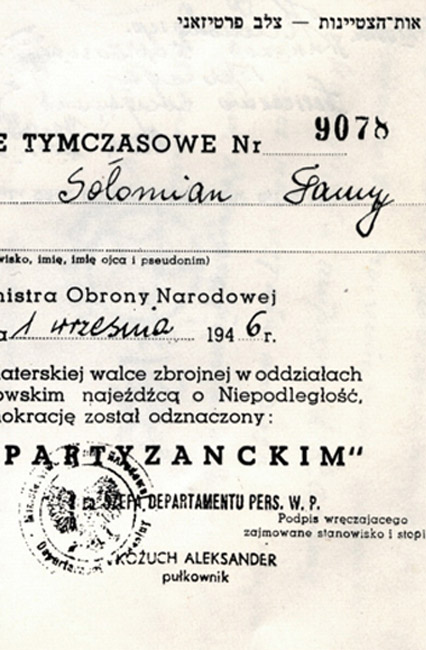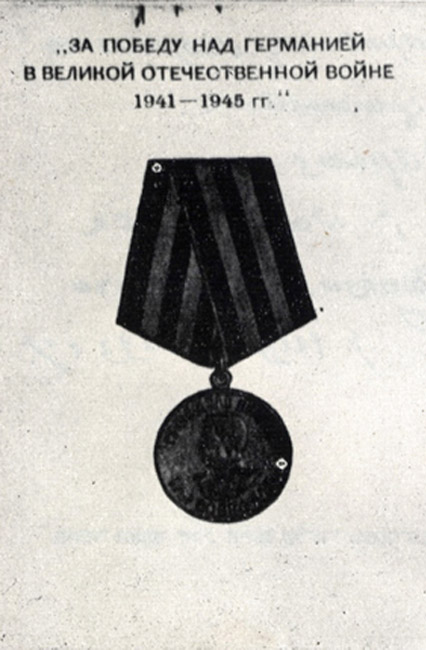Partisans and Underground
Fanny Solomian
Captain Fanny Solomian was a partisan and the chief physician of a partisan brigade.
She began her career by studying physical education in Warsaw and worked as a medical gymnastics instructor in hospitals. The Polish Ministry of Education sent her to Sweden for advanced studies but she returned when the war broke out. After returning to Pinsk, her hometown, she turned down an offer to join the Judenrat and became a liaison for the first partisan cells. When the ghetto was liquidated and all its inhabitants were murdered, she was one of the few who managed to flee to the forests and join the partisans. Initially she served as a nurse with small partisan companies but later on worked as a physician and set up an operating room where she performed numerous operations. Despite her status and centrality, Fanny felt that her colleagues did not give her the treatment and respect that she deserved because she was a woman and a Jew. She moved to Israel with her husband and daughter. Her husband became Poland’s first representative to Israel.
My senses numbed by alcohol. I began doing surgeries right away. I drained pus that had not congealed; I even amputated a finger that dangled from the rest of its hand by nothing but the ligaments of its joints. I did it all not with great knowledge but with all my heart, joyously. Amazingly, no one came down with an infection. No one griped. It was all done according to the partisan medical rule: “Let him heal like a dog.”
Under the conditions that existed in the forest, I adopted a natural healing method, using herbs that grew in the forest or in the nearby fields and pastures.
The peasants were familiar with many herbs and knew how to use them correctly... After I found the book The Health-Preserving Doctor, based on the fundamentals of natural healing, I became an ardent aficionado of this method.
...
“Hey, Miss Solomian, you’re still alive? None of your family made it. Just the dog. Sometimes he comes onto the porch, whining and crying, as though he were calling for you or your father.”
I went out to look for the dog, the only creature who had troubled himself to look for me anywhere.
Suddenly I noticed three dogs running. The one in the middle looked familiar to me. I whistled. The dog in the middle shook his head as if in disbelief, and suddenly emitted a wailing sound. His body trembled in a way that raised my flesh. The dog leaped upon me, licked me, circled me, and launched into a savage dance of joy.
People gathered around. They cried together with me. I clutched my dog and hugged him.
The people cleared a passage for me. Cleared a path so that the dog who had remained loyal could march with his Jewish mistress... [the animal that] had not forgotten, had not betrayed, who had searched until he found what he was searching for.




